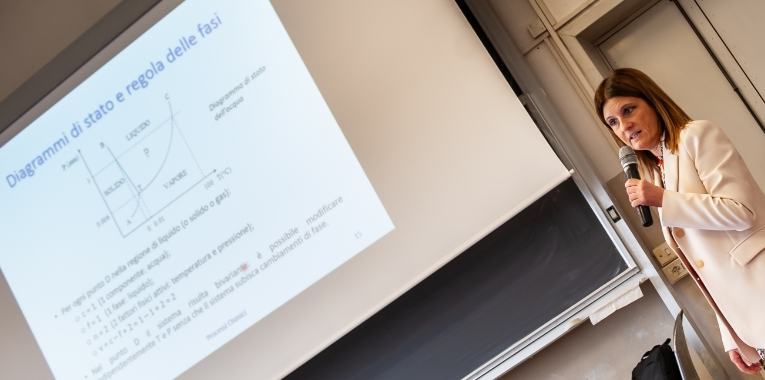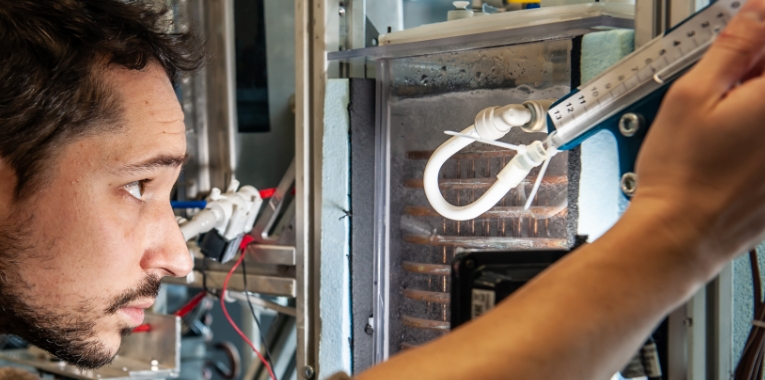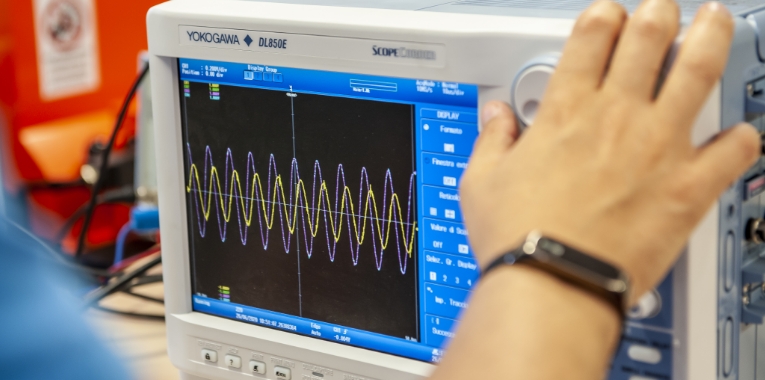
Interdisciplinary education is the key to preparing graduates in Energy Engineering to tackle the evolving challenges of a fast-changing energy sector.
This program offers a comprehensive education across thermal, electrical, chemical, and mechanical disciplines. You will learn how to design and manage energy systems, develop strategies for sustainable energy use, and implement energy-saving technologies in both buildings and industry.
The course also provides cutting-edge training in the production, storage, and integration of renewable energy into the grid.

The two-year program combines core courses with elective course groups, allowing you to shape a study path aligned with your interests and skills, while maintaining a strong academic foundation.
Choosing Energy Engineering means embarking on a solid, dynamic, and forward-looking academic journey. The program is designed to offer comprehensive preparation and numerous opportunities for personal and professional growth:
Comprehensive interdisciplinary training
From heat transfer and energy markets to integrated and renewable systems, including cross-disciplinary skills in chemistry, mechanics, and energy management.
Strong industry connections
Internships, thesis projects, and applied research in collaboration with energy sector companies.
Future-focused education
Development of IT and professional skills to enter the workforce quickly, plus initiatives like hackathons and technology challenges.
Hands-on experience
Educational labs, company R&D visits, and energy plant tours to build practical competencies.
Research opportunities
Collaborate on cutting-edge research projects within the university or with our external partners.
International outlook
Some courses available in English, with opportunities to study or write your thesis abroad.
Expert lecturers
Highly qualified and research-active professors deeply involved in student mentoring.
Become a specialist in a sector that is vital to the planet’s and humanity’s future.
Find a job easily

Graduates of the Master’s in Energy Engineering can work in strategic energy sectors, spanning innovation, design, system management, and research.
✓ Employment in private companies, public organizations, or the public administration
✓ Freelance consultancy
✓ Academic and industrial research
✓ Innovation and development
✓ Advanced energy system and device design
✓ Energy planning and policy
✓ Energy auditing and management
✓ Energy Manager roles for large energy users
Employment rate 12 months after graduation: 90–100%.
Average time to find a job after graduation: ~1.1 months.
Marco Antonelli, the Chair of the Master’s Degree in Energy Engineering, outlines the main topics covered in the program and the career perspectives for graduates.
DESTEC – University of Pisa
Largo Lucio Lazzarino, 2, 56122 Pisa
Phone DESTEC: +39 050 2217300
© Copyright – INGEGNERIA DELL’ENERGIA | University of Pisa Lungarno Pacinotti 43 56126 Pisa | P.I. 00286820501 C.F. 80003670504